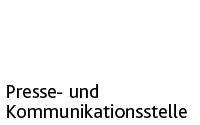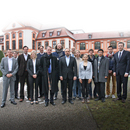Technology is a step ahead
Researchers from the University of Siegen concentrate on the next generation of driver assistance systems.
No hands on the steering wheel, concentrating purely on the mobile phone, drink or nearest passenger – that’s all possible with the next generation of driver assistance systems. But what level of assistance is required when driving a car? Is it not more important for users to enjoy steering the vehicle, gear shifting, accelerating and braking, or does everyone prefer to hand over the controls along with the responsibility? Do car drivers feel safer when technology takes over in emergencies?
Prof. Dr. Dr. Björn Niehaves of the Chair of Information Systems at the University of Siegen is researching new pathways and opportunities for "interactive and emotionally sensitive driver assistance systems". The aim is to discover the optimal interface between humans and technology. The INEMAS project has attracted funding worth 1.6 million Euros from the Federal Ministry for Education and Research (BMBF). "We want to generate basic knowledge for future generations of driver assistance systems", says Prof. Niehaves. His project partners also include Audi AG, the Spiegel Institut Mannheim GmbH & Co. KG, the Catholic University of Eichstätt-Ingolstadt and the University of Münster.
"Car drivers recognize the importance of this kind of innovation. Distractions can occur because of conversations with a passenger, 'road rage' due to other drivers or simply being lost in one’s own thoughts. Any of these situations may affect a driver’s attentiveness and reaction time. That’s how hazardous situations can become even more dangerous", explains the Siegen-based researcher. The collaborative project INEMAS starts its investigations here. The focus is on research problems such as: can sensors be used to record data about social interaction and emotions, and can this be reasonably integrated into driver assistance systems? Can such information lead to precise conclusions about the driver’s ability to react? "The focus of the collaborative research proposal is a driver assistance system that makes allowances for a driver’s emotional state and concentration levels, as well as considering these aspects as focal points and offering the driver suitable assistance", according to Prof. Niehaves.
The research team’s work firstly revolves around the ethical, legal and social questions which arise thanks to the development of these new technologies. These parameters are to be consistently integrated into the research process from an early stage, along with design-oriented implications, so that any innovations are configured in a sustainable and responsible way. Secondly, the team led by Prof. Niehaves deals with issues relating to user acceptance that may guide the development of future interactive and emotionally sensitive driver assistance systems. An extensive study is to be carried out involving male and female car drivers to determine the key factors – for example, privacy safeguards or protecting private data – that may make a substantial difference to the design of these systems.


